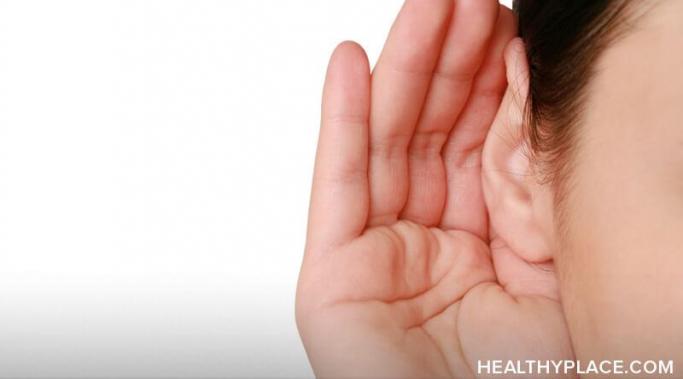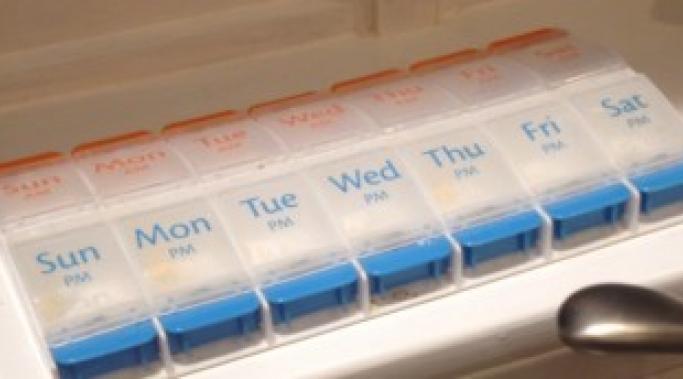A little while ago, I wrote a post about how I'm okay with my child having a mental illness. More recently, I was thrilled to learn that he feels the same way. My child wants to keep his attention-deficit/hyperactivity disorder (ADHD), and he isn't a fan of the idea of someone taking it away.
Psychiatric Medication - Parenting Child with Mental Iillness
Parents may be surprised to hear that antipsychotic medications are a common treatment for childhood attention-deficit/hyperactivity disorder (ADHD). They're often prescribed to help children who experience intense mood swings, aggression, destructive behaviors, or self-harm. These medications can be life-changing and life-saving, but the term "antipsychotic" is so stigmatized that parents might be terrified when doctors recommend antipsychotics. Of course, always consider the risks, but also consider the benefits of using antipsychotic medications in childhood.
Whether to use attention-deficit/hyperactivity disorder (ADHD) drug holidays or not is a secondary decision for doctors and parents of children with ADHD. But before you discuss ADHD drug holidays, you must decide whether to use ADHD medications at all. First, you have to manage the stigma and judgment that comes with medicating your child. Then, if you do decide on ADHD medications, you have to juggle side-effects, changes, and the complicated decision of ADHD drug holidays.
Medication compliance for people taking psychiatric drugs is notoriously hit and miss. Because of that, the Food and Drug Administration (FDA) recently approved a form of aripiprazole (Abilify) that digitally tracks medication compliance in patients with schizophrenia, some forms of bipolar, and some cases of depression according to Psychiatric Times.1 A digital sensor in the pill tracks when the medication is ingested by sending a digital tracking signal to an arm patch. Information can be provided to patients and might be shared with families and providers. While this may be the first such drug approved by the FDA, it will not be the last. So, the question for mentally ill patients and their families is this: Is this a wonderful, new medication compliance tool, or is it a potentially dangerous invasion of privacy?
If your child hears voices, your first reaction may be panic. The first time my son said he heard voices, I almost fainted. I work with adults who hear voices due to their mental illnesses, so my first thought was early-onset schizophrenia. My son does not have schizophrenia. Turns out, a child who hears voices isn't that unusual.
My child with mental illness has experienced many unpleasant side effects from his psychiatric medications. They range from mild and unwelcome to intolerable and dangerous. During the early stages of my son Bob's treatment, I voiced my concern about side effects to my son's psychiatrist. He said, "Pick your poison." He meant I had to choose between horrific side effects of my child's psychiatric medications and my son's mental health. Ugh.
There is a pill container in my kitchen sitting on the windowsill above the sink that contains psychiatric medication that I give to my child with a mental illness. It contains 14 compartments, labeled the days of the week, AM and PM. The compartments have dosages of antidepressants, antipsychotics, mood stabilizers and acne medicine. My son, Bob, takes a handful of these pills every morning before he goes to school and every night before he goes to bed.
My son Bob is doing really well right now. I wish I could say he has been cured of his mental illness, but that is not the case. In fact, he is symptomatic everyday. My son is doing well because he is treatment compliant and his mental illness treatment is working. So what is treatment for a child with mental illness?
My child with mental illness stopped taking his psychiatric medication without telling me.
Yeah, I spit 'em out. I flushed 'em in the toilet and ran 'em down the garbage disposal. I slid 'em into my pockets and held 'em under my tongue. Why? Because they make me feel normal and I hate feeling normal!
I know medicine refusal is common for those living with mental illness. A chapter is devoted to the topic in every book. I should not have been surprised.
The decision to medicate your child for a mental illness is often an agonizing one. Many parents that I work with struggle to find the balance between dealing with their child's behaviors themselves and letting someone help them. Medicating a child is not the easiest decision to make for some parents while for others it is the easiest thing to do.
As a parent who does choose to medicate my child, I have to say that medication in and of itself, does not resolve behavior issues. Yes, medication does help, but I believe it to be a last resort option. Below are descriptions of some of the parents I've worked with. So would you choose to medicate or not to medicate your child for a mental illness?








